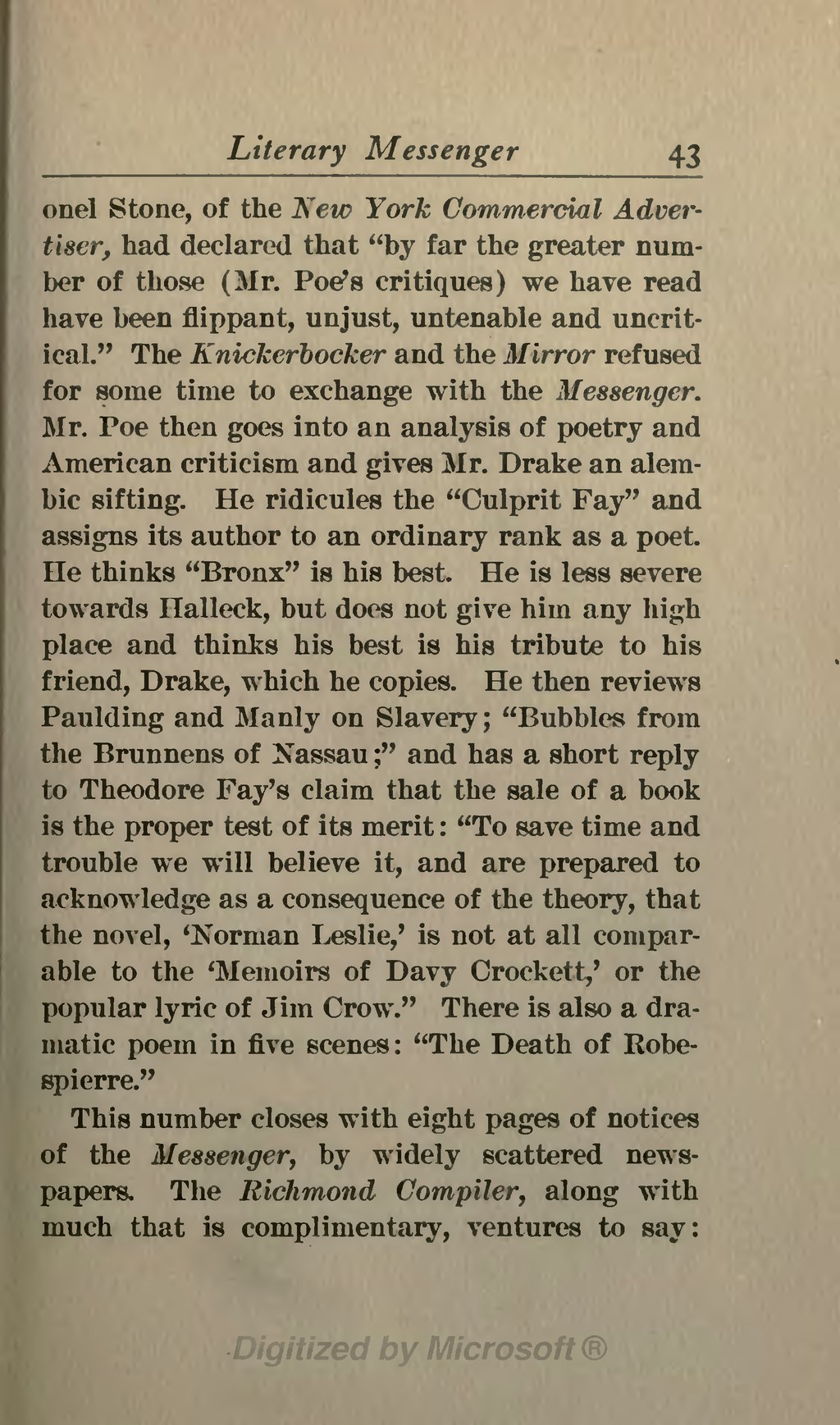onel Stone, of the New York Commercial Advertiser, had declared that "by far the greater number of those (Mr. Poe's critiques) we have read have been flippant, unjust, untenable and uncritical." The Knickerbocker and the Mirror refused for some time to exchange with the Messenger. Mr. Poe then goes into an analysis of poetry and American criticism and gives Mr. Drake an alembic sifting. He ridicules the "Culprit Fay" and assigns its author to an ordinary rank as a poet. He thinks "Bronx" is his best. He is less severe towards Halleck, but does not give him any high place and thinks his best is his tribute to his friend, Drake, which he copies. He then reviews Paulding and Manly on Slavery; "Bubbles from the Brunnens of Nassau;" and has a short reply to Theodore Fay's claim that the sale of a book is the proper test of its merit: "To save time and trouble we will believe it, and are prepared to acknowledge as a consequence of the theory, that the novel, 'Norman Leslie,' is not at all comparable to the 'Memoirs of Davy Crockett,' or the popular lyric of Jim Crow." There is also a dramatic poem in five scenes: "The Death of Robespierre."
This number closes with eight pages of notices of the Messenger, by widely scattered newspapers. The Richmond Compiler, along with much that is complimentary, ventures to say:
